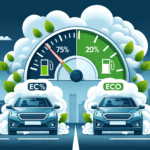Musk and cryptocurrency
Tesla said in February of this year that it had purchased $1.5 billion in bitcoin, implying that it intended to accept Bitcoins as a form of payment from those interested in purchasing its automobiles. By all accounts, this was a confident display. And the cryptocurrency’s value skyrocketed.
Elon Musk, on the other hand, abandoned his agreement just last week. After selling around 10% of the company’s bitcoin holdings, he declared that Tesla had ceased bitcoin purchases due to worries over the usage of fossil fuels in mining. The price of bitcoin plummeted, and investors were outraged.
- Advertisement -
Bitcoin mining is an expensive endeavour. To maintain the network secure, each network participant solves a mathematical problem. And these computations are performed on sophisticated computers that consume exorbitant amounts of electricity. According to reports, the bitcoin network consumes the same amount of electricity as a medium-sized country (Like Egypt). And, because most miners work in countries that provide inexpensive electricity by burning filthy fuel, it has been a source of concern for many people in the ecosystem.
The only problem is that Elon Musk was aware of all of this in February. So why would he make such a bold declaration only to rescind it a few months later? It just doesn’t make sense. In fact, many people now suspect him of engaging in market manipulation. That this was a planned tactic to influence Bitcoin’s value. However, given Tesla’s commitment not to sell its bitcoin holdings just yet, there could be another explanation.
- Advertisement -
So what happened?
Let’s start with Tesla and the United States’ environmental policies. Many jurisdictions in the United States require automakers to create a set number of renewable energy vehicles or to minimise CO2 emissions in other instances. If they do not, the state will punish them. So, if you’re a traditional carmaker still striving to put together the infrastructure required to mass-produce energy-efficient automobiles, you’re in for a difficult ride. Fortunately, you have a “get out of jail free” card. If you are unable to meet your quota, you may seek assistance from someone who is.
Consider Renewable Energy Certificates, for example (RECs). These certificates, or credits as they are more often known, demonstrate that you have done your fair share to reduce your carbon footprint. And, if you earn more credits than your mandated quota, you can sell them to others who are struggling to fulfil their targets. If someone is prepared to pay, you can profit from this technique. Tesla, as you may have suspected, is in the renewables sector, and as a market leader, they have access to a large number of RECs. They can offer RECs to established automakers such as Fiat-Chrysler and General Motors.
- Advertisement -
And this works nicely for all parties involved. To avoid heavy penalties, the traditional companies must now pay Tesla, and Tesla has an added motivation to continue creating more energy-efficient automobiles. And if the old guard does not follow suit and convert to EV, they will be forced to continue paying their biggest competitor large sums of money each year. It’s a tremendous deterrent.
Tesla made $428 million from the sale of RECs between April and June 2020. And, while it may seem insignificant in relation to the $6 billion in total income they generated that quarter, keep in mind that the RECs are free. They are essentially pure profit. As a result, it’s a huge issue. Traditional automakers, unfortunately for Tesla, are catching up. They are attempting to satisfy their own clean energy requirement, and they may no longer require Tesla to sell them the coveted RECs. As a result, analysts have been skeptical of Tesla’s chances in this area.
But something changed in April 2021.
- Advertisement -
Major developments
The White House has requested the EPA to investigate whether electric vehicles can earn renewable fuel credits. This is not the same as the RECs that we just discussed. The United States has likewise had a plan in place to minimise energy emissions since 2005. Oil refiners were required to integrate a specified amount of biofuels into their fuel mix under the United States Renewable Fuel Standard. If they did not satisfy the quota, they were required to purchase tradeable credits from those who did. These credits were known as RINs (Renewable identification numbers).
However, with the White House now seeking a review, it may pave the path for Musk to join as well. Biogas is already used to generate energy at the company. According to a recent Reuters article, Tesla has an application pending with the Environmental Protection Agency. If it is approved, Tesla may begin producing and selling RINs while also reaping billions of dollars in revenue. It’s a once-in-a-lifetime opportunity that you simply cannot afford to pass up. According to legend, Musk disavowed Bitcoin in order to demonstrate his dedication to the environment. That this was all a clever strategy to sway the EPA’s regulators. It’s a fascinating theory in world news.







